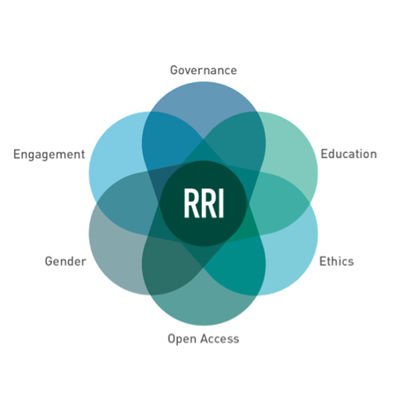 By Melanie Smallman, deputy director, UCL Responsible Research Innovation Hub
By Melanie Smallman, deputy director, UCL Responsible Research Innovation Hub
Sign up for our free Policy Lunchbox on Friday 10th June 2016: What is Responsible Research and Innovation?
Given the power of science and innovation to transform our world, we need to make sure that it works with and for society. But what does this mean in practice? What does it mean for research and researchers?
Responsible Research and Innovation (RRI) is a theme that is building momentum across the research community. Indeed, as one of the cross-cutting themes in the European Commission’s Horizon2020 programme, it should be of interested to any researcher aspiring to work on a European funded project.
The RRI Toolkit project, which involves 26 institutions across Europe, coordinated by “la Caixa” Foundation (Spain) and led in the UK by UCL, offers tools and training to bring this idea to life for five key stakeholder groups: research, industry, policymaking, civil society and education. Over the past two years, we have been working with these stakeholder groups to explore their perceptions of RRI as well as to identify emerging needs and actions.
 In the autumn of 2014 we ran 30 workshops in 22 countries across Europe, bringing together more than 400 people to discuss how we can make RRI happen. And the feedback was very interesting as researchers in particular told us that the culture of research had as much to gain from RRI as wider society has. For example, aligning research more closely with the wishes of society was seen as a valuable way to avoid future public controversies around science and technology. They also told us that research could become more creative and excellent as a result of RRI since it encourages researchers to engage with wider perspectives and new networks. The researchers we spoke to did however tell us that the concept of RRI needed to be brought to life by spotlighting outstanding examples of RRI in practice.
In the autumn of 2014 we ran 30 workshops in 22 countries across Europe, bringing together more than 400 people to discuss how we can make RRI happen. And the feedback was very interesting as researchers in particular told us that the culture of research had as much to gain from RRI as wider society has. For example, aligning research more closely with the wishes of society was seen as a valuable way to avoid future public controversies around science and technology. They also told us that research could become more creative and excellent as a result of RRI since it encourages researchers to engage with wider perspectives and new networks. The researchers we spoke to did however tell us that the concept of RRI needed to be brought to life by spotlighting outstanding examples of RRI in practice.
So, over the past 18 months, we have been doing just that – developing a growing collection of resources and ‘inspiring practices’ that bring RRI to life and help researchers put it into practice. For example, the Xplore health project that has involved school students in real biomedical research projects – and encouraged the students to discuss and consider the ethical issues involved; or the Social Innovation Factory, which brings together civil society organisations, researchers and entrepreneurs, to solve social problems.
But these aren’t just stories that sit on our website – we also offer training to the stakeholders involved, so that together we can build a scientific future that works with and for society. If you would like to find out more about our training, or to join our community of practice, please visit our website or get in touch with us via email.
Sign up for our free Policy Lunchbox on Friday 10th June 2016: What is Responsible Research and Innovation?

